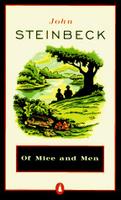Revenge of the Middle-Aged Woman
 Revenge of the Middle-Aged Woman
Revenge of the Middle-Aged WomanElizabeth Buchan
July 2005
I am not sure why I picked this book from the countless titles in PSZ. Perhaps it’s for a balance for the heavy reading I presumed from “Of Mice and Men”.
Or perhaps it’s related to the stories surrounding me. In recent months, my ears keep receiving tales of betrayal in relationships. And not surprising, the ladies are the victims. Initial feelings of contempt towards members of the opposite sex evolved gradually to continuous questioning, and now... complacent? It’s almost like, “if you accept to be in a relationship, you might as well also accept that one day he will have an affair”. Then the next question comes…is ignorance a bliss?
So back to the book. It’s quite the typical setting of how a wife was left by her husband after a twenty five year marriage. To add to the drama, the husband’s lover is her colleague and friend. And! She eventually also looses her job to the bitch.
However, the ending is not so typical, well at least not typically for fictional dramas. For one, Rose (the wife) did not stir up much of a row when the husband left her. Instead, she accepts and respects her husband’s choice and freedom of space. I hope I would one day have her grace and maturity, though while I was reading, I could not help but keep shouting inside my head, “Gosh! Why is she not making more of a fuss?! She should have done more to get her husband back!”
Instead, she paid revenge in another way. By being totally complacent and finding peace in herself. Definitely, she went through a bad time, described very richly by the writer, especially the different emotional change one goes through. She eventually picked herself up and began building her life again. A new career, a new home, even a new love life.
One thing too, the book stirred the domestic part of me which is hibernating underneath dreams of conquering mountains and building business empires. (Yes, surprising to some of you). Well, I used “stirred” because it is a momentary realization that I really value the idea of settling down. The idea of having a home and family, a beautiful one, where I will share with that someone till the wrinkles and crinkles creep in. Though for now, I will keep it in a hibernation mode, to be awaken at the right moment in life.
Yes, the book can be quite cliché. But worthwhile for light reading and especially since I do not often read books (or watch movies) with plots such as this.


